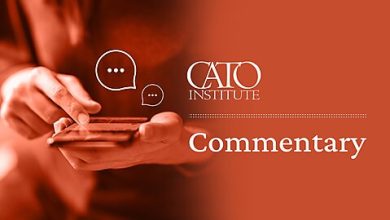Misinformation Is Not the Election Boogeyman

The election is over and the losing side is scrambling to justify its defeat. An emerging narrative is that misinformation is to blame: inaccurate reporting, misleading and biased statements from politicians and government officials, conspiracy theories spread on social media, and social media companies that seemed to have favored the winning side. Fear mixes with anger over the inability for the “right” information to get out and win the day.
Sound familiar? While it describes the current reaction of some progressives, it just as easily describes conservatives in 2020 and their now mostly substantiated claims that a laptop contained all sorts of dark personal secrets and politically inconvenient information about Hunter Biden and his father.
The legacy media wrongly ignored or refused to take seriously those claims. Political figures and dozens of former intelligence figures claimed or suggested that the laptop was a Russian disinformation operation. Social media users theorized that this was yet more proof of Trump working with and being a puppet of Russia. And social media companies, having been told repeatedly by the FBI to prepare for a Russian plot involving Hunter Biden, quickly responded to remove or suppress the truth.
By their own definitions, these actors all spread misinformation about the laptop, which Republicans claim threw the election to Joe Biden.
The narrative now being spread is that misinformation is to blame for the Democrats’ defeat in 2024. On MSNBC’s Morning Joe the day after the election, co-host Mika Brzezinski read a text she got from a Democratic member of Congress who blamed the fact that people are turning to non-traditional sources of news like social media and podcasts, as well as “news stations that aren’t news.” The member was “shocked by the amount of misinformation that voters were repeating back to me … you cannot win when people believe lies.” Others blamed Elon Musk and X for being “disinformation propagandists.”
But every political movement blames the other side for lying, misleading the public, or otherwise spreading misinformation. And this is easy because most misinformation is highly subjective and partisan. Of course, Democratic politicians would say that Republican claims about the economy, immigration, racial and gender issues, abortion, etc., are misleading and false, just as Republicans contest the veracity of Democratic claims.
It’s also true that both sides say and believe inaccurate or misleading things. In this election, the obvious example was that migrants in Ohio were eating dogs and cats. But during COVID-19, polling found that Democrats radically misunderstood the risk of COVID, with 41% of Democrats believing that over half of those who get COVID would need to be hospitalized, while the real figure was somewhere between 1% and 5%.
But the reasons why Americans share and believe misinformation isn’t as simple as believing everything you see online. People aren’t “infected” with misinformation. But the evidence shows that they engage with false information in a variety of complex ways, including humor, criticism, and curiosity. Many users are skeptical of what they read, especially as trust in the media has fallen. This means that many citizens research or check what they read online or hear from pundits.
Meanwhile, some users may engage with misinformation to signal they are part of a movement or a party. For partisans, they are likely to believe a piece of information because it fits their biases.
Misinformation then isn’t exactly the problem it is made out to be. It is poorly defined, subjective, complex, and often most concentrated among existing partisans. It is a convenient boogeyman because, of course, false information is not healthy or good for our society. There certainly are cases where misinformation results in people doing harmful things. But the problem is less that any given piece of information is false or misleading—it is more that misinformation is a symptom of a deeper lack of trust in our society and institutions.
Censorship and cancel culture, noble lies of the experts, real or perceived bias within supposedly neutral fields of journalism, study, or government, and other failures of our institutions to trust citizens have backfired massively. And as trust in authority has cratered, people have grown skeptical and cynical about all information, whether true or false.
The solution then is not to reassert the authority of experts, accuse those who do not trust mainstream institutions, or blame technology for expanding speech and access to information, especially when it conflicts with the dominant narrative. This top-down approach only further alienates an already highly skeptical population.
Instead, some intellectual humility is called for. Americans have some significant political disagreements, but merely reducing the problem to insisting that the other side is gullible, stupid, or evil and needs to be silenced, regulated, or force-fed the truth is not only wrong, it is counterproductive. Greater dialogue, more speech, and empowering individuals are the only ways a liberal society can develop knowledge and make progress.





